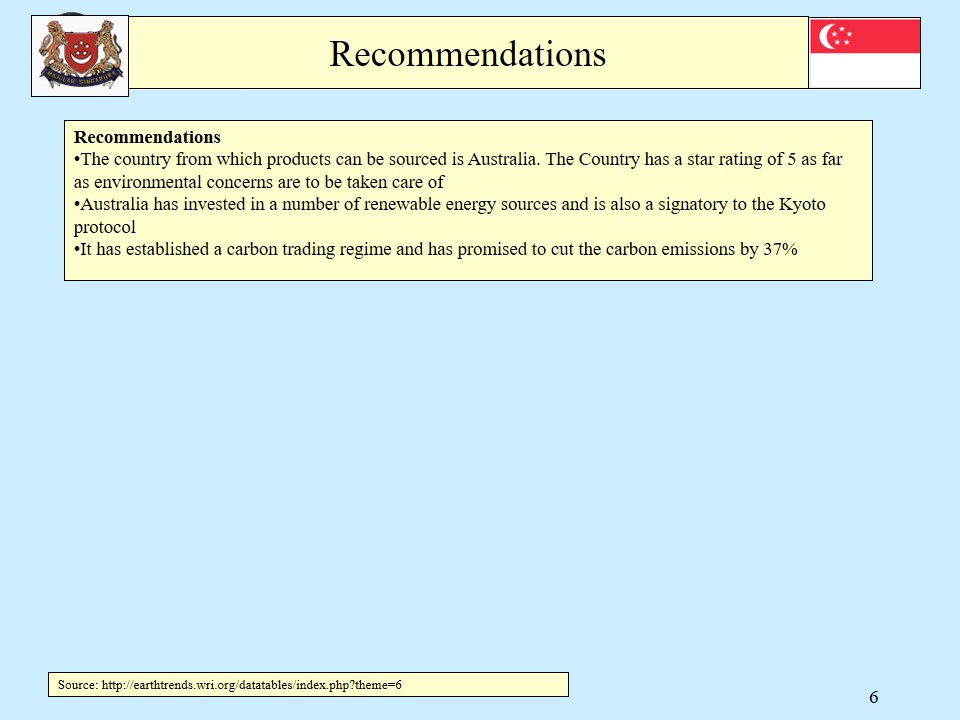Table of Contents
General Profile
Political Stability
- Parliamentary democracy with a Westminster system of unicameral parliamentary government Headed by the Prime Minister, currently Lee Hsien Loong.
- Leading political parties are People’s Action Party (PAP); Workers’ Party of Singapore, the Singapore Democratic Party (SDP) and the Singapore Democratic Alliance (SDA), etc.
- Laws allow capital punishment for first-degree murder and drug trafficking.
- Least corrupt country in Asia is among world’s ten most free from corruption.
- Stable politics with good economic policies.
Economic Development Model
- Highly developed and successful free-market economy.
- Economy depends on exports, of consumer electronics and information technology products.
- Fiscal stimulus, low interest rates, surge in exports, and internal flexibility led to vigorous growth in 2004-07 with real GDP growth averaging 7% annually.
- Major FDI in pharmaceuticals and medical technology production.
- GDP (purchasing power parity):$228.1 billion; GDP – real growth rate: 7.7%; GDP – per capita (PPP): $49,700.
- Current account balance: $39.16 billion; Exports: $450.6 billion f.o.b. Imports: $396 billion.
- Unemployment rate: 2.1%; Revenues: $27 billion; Expenditures: $21.5 billion.
- Agriculture products: rubber, copra, fruit, orchids, vegetables; poultry, eggs; fish, ornamental fish.
- Industries: electronics, chemicals, financial services, oil drilling equipment, petroleum refining, rubber processing and rubber products, processed food and beverages, ship repair, offshore platform construction, life sciences, entrepot trade.
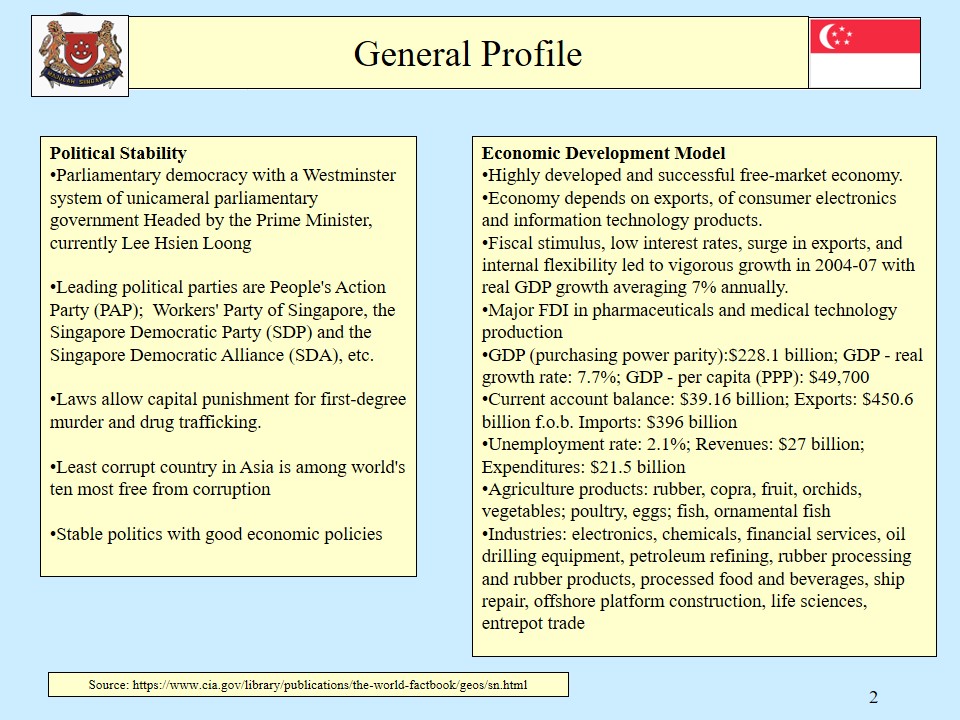
Environmental Profile
Carbon Emissions
- 26.80 CO2e Mt; 8.38 CO2e t/person.
- 2 % of global emissions.
- Increasing at 3 % annually.
Renewable Energy Status
- Singapore has a renewable energy policy but it does not used renewable energy source for energy production.
Fair Trade Status
- The FLO Fairtrade system is distinct from most development schemes as it empowers and guarantees a better deal to disadvantaged producers. It addresses the injustice of low prices by guaranteeing that producers receive fair terms of trade and fair prices – however unfair the conventional market is. Additionally to the Fairtrade Minimum Price, the Fairtrade Labelling system guarantees a Premium to producer organizations or worker bodies to enable them to invest in social, economic or environmental improvements.
- The concept of Fairtrade, however, goes far beyond a simple economic transaction. At the heart of Fairtrade are long term relationships between producers and buyers, enabling producers to strengthen their businesses and diversify their sources of income. Unlike aid, which is dependent on donors, Fairtrade offers a more sustainable solution for farmers, workers, and their families to improve their livelihoods.
- Currently no Items and products are dealt with from my country.
- There is an opportunity to trade in Cotton.
Carbon Trading Regime
- Singapore has acceded to the Kyoto Protocol that commits signatory countries to reduce harmful greenhouse gas emissions
- Countries that ratify the Kyoto Protocol commit to reducing their emissions of carbon dioxide and five other greenhouse gases in a bid to slash pollution and address climate change concerns.
- The National Environmental Agency (NEA) announced on 29 August 2008 a new $500,000 grant which will provide funding of up to half the cost of a carbon credit project, capped at $100,000.
- One credit, or Certified Emissions Reduction (CER), is equivalent to one less tonne of carbon dioxide emitted. This is currently priced around 20 euros (S$42).
- There are currently four local companies – Bee Joo Industries, Power Seraya, Kim Hock Corporation and IUT Global – which are in the process of getting their carbon credit projects approved. Their projects range in sectors from waste heat recovery to biomass energy.
- The four projects will reduce Singapore’s annual carbon dioxide emissions by 533 kilotonnes a year. Based on a current price of 22 euros, the firms can earn a total of $235 million over the 10-year period set out by the UN.
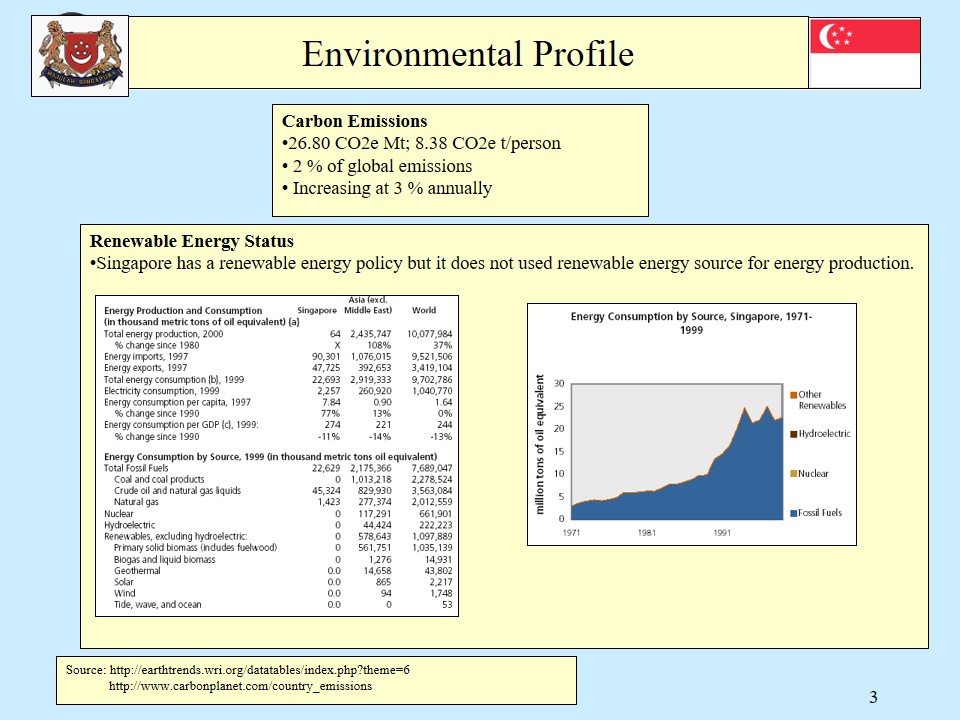
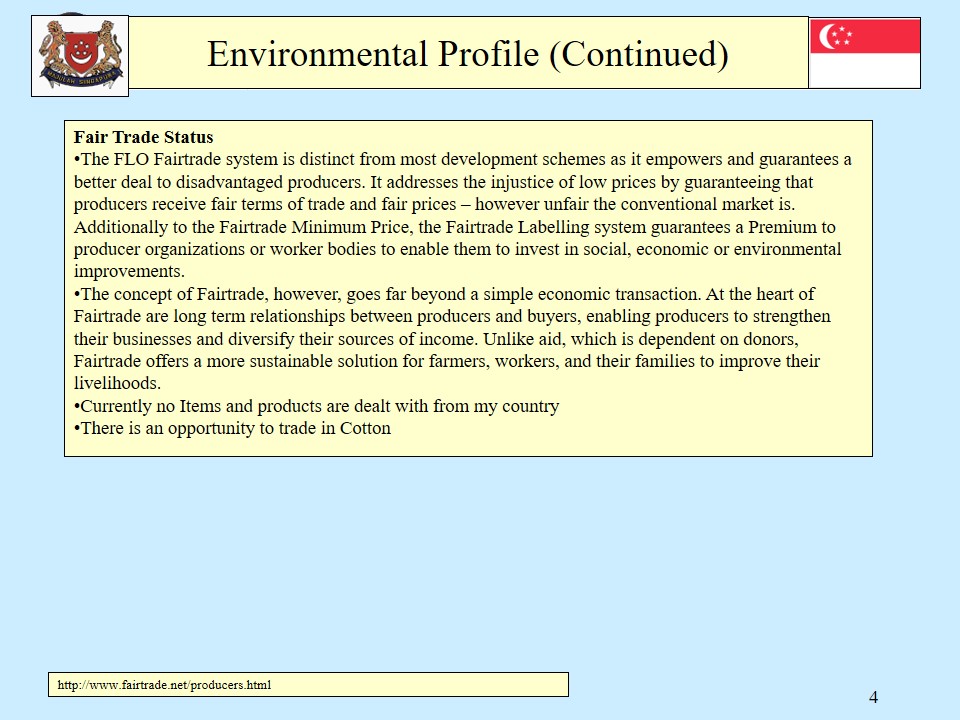
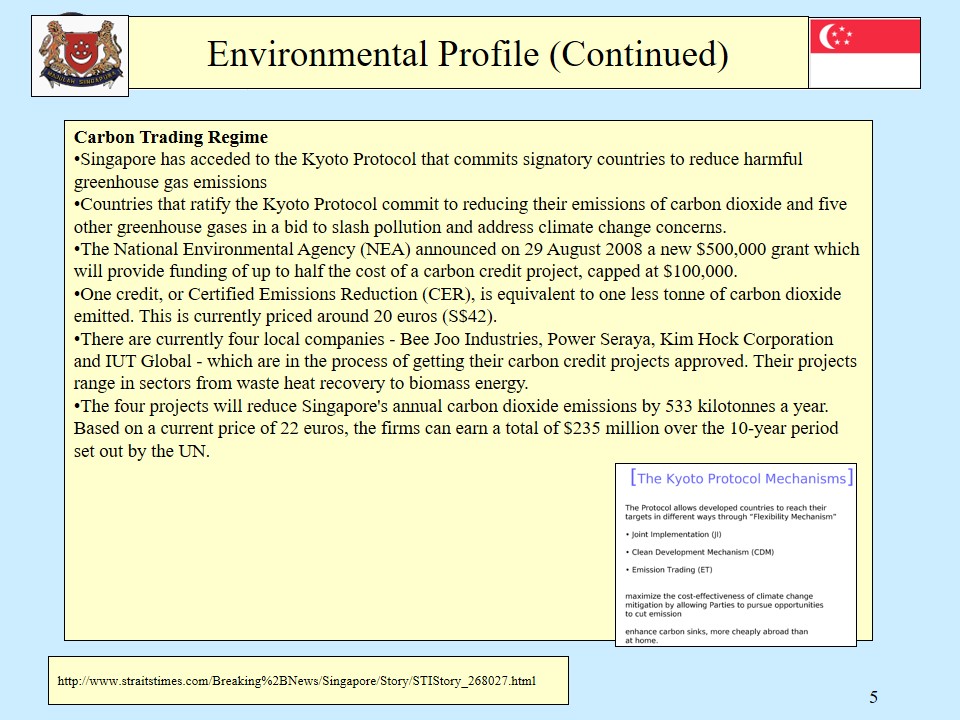
Recommendations
- The country from which products can be sourced is Australia. The Country has a star rating of 5 as far as environmental concerns are to be taken care of.
- Australia has invested in a number of renewable energy sources and is also a signatory to the Kyoto protocol.
- It has established a carbon trading regime and has promised to cut the carbon emissions by 37%.
